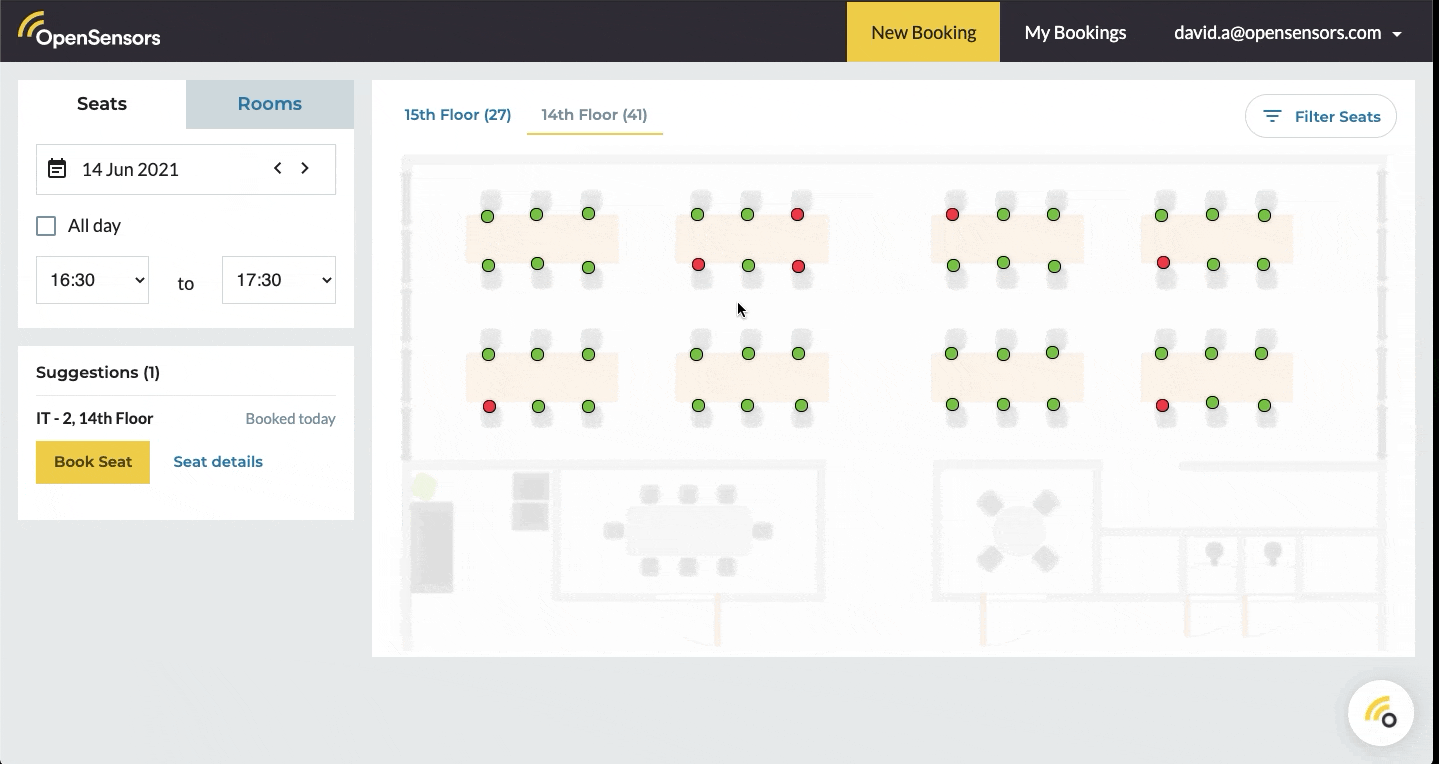Dive into an exploration of what it means to foster resilience within your workplace strategy, and the long term advantages it brings to both space planning and employee experience.
Navigating the pandemic has highlighted the importance of creating workplaces which are able to adapt and react immediately to changes in circumstances to meet the evolving needs, desires and safety of employees, whilst ensuring that business continuity is maintained.
Why resilience is key
The rigidity of traditional office models was made evident as lockdown orders were introduced around the world, and not only insofar that the dominant arrangement of 1:1 seating with a scattering of hot desks was unable to accommodate the demands placed on it by social distancing and track and trace requirements.
Work from home challenges
As the pandemic endured employees encountered new and unexpected challenges when working from home. For many, they simply did not have a suitable environment in which to complete their workload, either lacking the necessary spaces or tools.
It became clear that many hadn’t been provided the necessary training and development to complete their tasks and collaborate in a solely digital environment. Others grew to miss the social aspect and work life separation that offices provide, and it became apparent that many organisations seriously lacked the necessary channels of communication to support employees working remotely.
In response to these challenges hybrid work environments have emerged globally as the prevalent solution, with organisations striving to create frameworks in which individuals are able to decide for themselves what environment is best suited to their tasks, and are free to access spaces as they desire, safe in the knowledge that they are supported top down in their decisions.
What hybrid workplaces bring to employees
Creating a workplace and working environment able to bounce back from adverse circumstances brings numerous long term benefits to employees. Below some of these key features are explored:
Increased training and development
-
Ensuring that employees have the personal tools necessary to work in a variety of settings and in the face of new challenges requires top down investment in employee development.
-
Empowering employees to work at their full potential through training unlocks greater problem solving capabilities, and will increase coordination between departments and regions as company wide communication is improved to ensure all employees remain in the fold.
Improved engagement
-
Providing employees with the agency to manage their own working lives, alongside the required tools and training, reduces the risk of burnout and damage to wellbeing.
-
Employees who feel valued and supported are more likely to remain engaged with their work and maintain their commitment should new challenges arise.
-
Creating a workplace in which employees are free to work in their preferred environment will get the best from them in return.
Focus areas for change
Clearly this new way of working will require the upheaval of existing working models and the introduction of new systems and tools which enable employees to successfully navigate hybrid environments. The following areas are some which HR, Facilities and Senior Leadership teams must consider now in order to successfully transition to hybrid working.
Office design
Demands on space will inevitably change as remote work becomes an ingrained part of workplace strategies. Employees’ usage of assets within the office will become increasingly deliberate as groups come together to collaborate. However, there still remains the need to provide for those employees who require access to the office to complete their tasks, and also those who simply prefer to spend their working day away from home.
Ensuring that the office is providing the correct array of assets has never been more important. The introduction of occupancy solutions enables HR and Facilities teams to identify where the opportunities for change lie, as underused assets are identified and replaced with those which are in high demand.
Leveraging occupancy data in this manner does not only aid in creating fit for purpose workplaces, but also plays a vital role in avoiding unnecessary and costly office expansions as existing space is used to its full potential. Furthermore, the creation and management of office spaces is highly damaging to the environment and organisations should be taking every possible measure to reduce their carbon footprint.
Booking systems
The success of hybrid environments hinges on space management. Employees need to be able to access the spaces they require quickly and easily, and have the freedom to shape their working life around their current situation. Introducing booking systems allows employees to view which spaces are available at a time that suits them, and furthermore edit their reservations should their schedule change.

Flexibility such as this is vital, as prevalent no shows and block bookings are a major cause of frustration to employees. Additionally, ensuring that spaces are used to their full potential is central in optimising the usage and cost effectiveness of workplaces.
Booking systems which are connected to occupancy sensors furthermore reduce the workload placed on HR and Facilities teams, as releasing unused booked spaces becomes an automated process.
Gathering booking data also assists in managing these issues, as HR and Facilities teams are able to provide department heads with the data necessary to make informed decisions regarding their booking and space policy.
Key takeaways
- Making evidence based decisions regarding office space is vital in hybrid environments, as workplaces need to be ready to adapt to changes in employee behaviour and external circumstances.
- Hybrid environments promote resilience both in the physical layout of the office and in the working lives of employees, enabling individuals to work with great agency and trust.
- Occupancy data is key when it comes to ensuring your workplace is designed with employee behaviour in mind as guesswork in office layout is removed.
- Booking systems and data will become the central point of access in hybrid environments, and are vital to their success.

